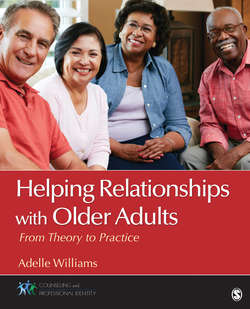Читать книгу Helping Relationships With Older Adults - Adelle M. Williams - Страница 22
На сайте Литреса книга снята с продажи.
Somatic Mutation Theory of Aging
ОглавлениеThe somatic mutation theory of aging proposes that harmful or deleterious mutations (genes that are incorrectly copied) will accumulate with advancing age, leading to an increase in pathological changes (disease altering) in body systems (Bengtson et al., 2005). Over a lifetime, a person’s body is exposed to many external insults from air pollution, chemicals in food and water, and radiation, which cause mutations or genetic damage to somatic (body) cells. Air pollution has been linked to respiratory illnesses (bronchitis, emphysema, asthma), chemicals in food and water have been linked to gastrointestinal disorders (stomach and liver problems), and radiation has been linked to cancer.
This theory is helpful in understanding variations between body systems in the aging process, but fails to explain basic processes of normal change. As cells grow and divide, a small proportion of them undergo mutations. This change in the genetic code is then reproduced when the cells again divide. The somatic mutation theory of aging assumes that aging is due to the gradual accumulation of mutated cells that do not perform normally. Genetic mutations occur and accumulate with increasing age, causing cells to deteriorate and malfunction (Jin, 2010). This leads to cellular dysfunction such as cancer. Different organs may develop diseases and some may be spared; however, these mutations are uncontrolled.
